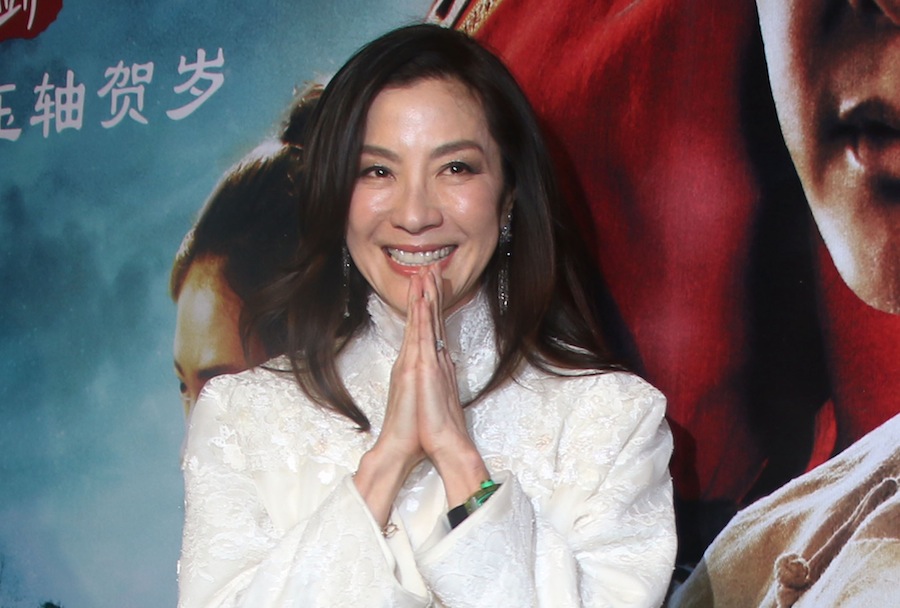Michelle Yeoh wouldn’t say she was reluctant to do “Crouching Tiger, Hidden Dragon: Sword of Destiny.” The new film, hitting Netflix and select theaters Friday, is the belated sequel to the 2000 hit, which smashed box office records and was a serious Oscar contender — here in a country where Asian martial arts cinema was before then (and mostly since, too) largely consumed by rabid cult audiences. But she wanted to get it right, even if it’s a follow-up missing people like director Ang Lee and actors Chow Yun-Fat and Zhang Ziyi. Still, the legendary actress, now 53, insists being different is a good thing. And at least she didn’t get hurt this time. RELATED: Interview: What RJ Mitte wants to do most is an action movie The first “Crouching Tiger” was a very different martial arts movie: slower, with lots of character development. How did you feel about that at the time, given your long history with more traditional martial arts films? Honestly, no. How often have you gotten hurt on set? RELATED: Interview: Aaron Paul talks “Triple 9” and what it’s like to do a ride along How do you feel doing action nowadays? Donnie Yen, your costar here, has talked about retiring, or at least scaling back, on martial arts because he’s in his 50s. The second “Crouching Tiger” is very different from the first. This is more like traditional martial arts films, which more action, fewer quieter moments. RELATED: Review: “The Mermaid” is that Chinese blockbuster no one told you about Unlike the first film, this is in English. You’ve talked about hating speaking Mandarin in the first film, which you had to do phonetically, whereas you speak English fluently. RELATED: Interview: Jackie Chan on “Dragon Blade” and doing action with more story I’m embarrassed to say I’d never seen your 1992 film “The Heroic Trio,” which I watched as prep for this interview. It’s interesting contrasting that era with later martial arts films, as the fighting and camerawork are so fast and furious.
I had just come off “Tomorrow Never Dies,” the Bond movie. I met with Ang Lee, who said, “I want to do ‘Sense and Sensibility’ with martial arts.” He described it like a watercolor painting coming to life. It was a memorable journey, but it was also one of the most painful moviemaking experiences I had. During the last hour of the first action sequence [the one where she runs on the rooftops], I tore my ACL. I needed surgery. You couldn’t tell the difference, could you?
If you watch the movie you see me walking slowly. That’s because I had a big brace under those baggy trousers. It took me three months to recover, to be ready for the last fight sequence.
It happens. I’ve hurt my neck, my back, my ribs. There have been more than a few scratches and bruises along the way.
When I’ve had injuries I’ve actually improved and strengthened those parts of the body. You have to work on it. But I also have a great love and passion for any kind of movement. I’m in training every day, even when I’m not doing an action film. I have to do something physical, whether I’m hiking or at the gym. I don’t know how long I’m going to be able to do this — or how long I want to do this — but right now I’m able to do it, so let’s kick some ass.
They’re two completely different movies. It’s not a sequel; it’s a standalone story, about a warrior you’ve met before. When you met Shu Lian [her character], she wasn’t much of a warrior yet. She was a protector of the code. But now she’s at an enlightened stage. She lives in the mountains, she’s only practicing her zen-like martial arts. She’s a master now. And you see more of the styles of martial arts you only heard about [in the first film]. It’s not just about emotional bonds but about different skill sets that each character has, coming together. That’s the biggest difference in this film.
[Laughs] I was greatly relieved when it was going to be done in English. At the end of the day, I think it’s important that it transcends the language. In the past it mattered to me, that it had to be in the original language. I had so many rules. But now I’m more relaxed about it.
We had so much fun on that film. Too much fun. [Laughs] In Asia at that time that was what audiences demanded. They were used to that fast pace, to things always happening. Things have slowed down a little bit, and I think it’s better, rather than having it all at a dazzling speed. You can actually enjoy the nuances, rather than it just speeding by. It’s makes more of an impact.
Michelle Yeoh on that leg injury she got on the first ‘Crouching Tiger’

Getty Images
Follow Matt Prigge on Twitter @mattprigge
























